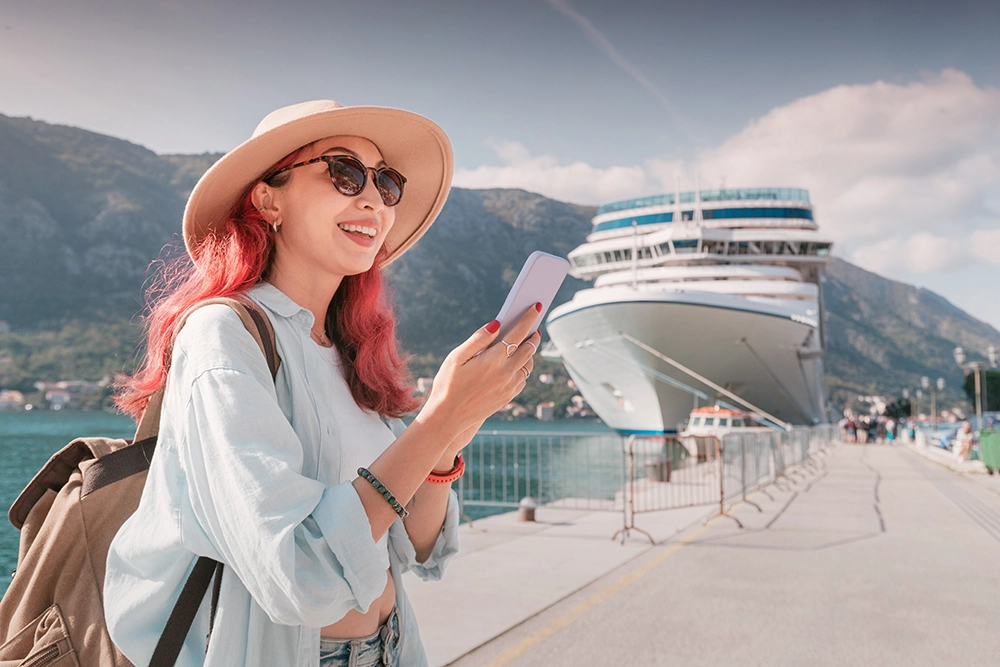How Cruise Lines Use Data to Personalize Guest Experiences
Introduction
Cruise lines are harnessing data like never before, moving beyond generic itineraries to crafting guest experiences that feel individually designed. For COOs, CMOs, and tech-savvy product leaders, data can be a strategic lever with the potential to drive long-term loyalty and real-time operational gains. From dining preferences to activity recommendations, guest data is not only enhancing onboard satisfaction but building brand affinity and encouraging repeat bookings. This article explores how cruise operators gather, interpret, and activate guest data to deliver tailored voyages that scale.
The Data-Driven Voyage Begins at Booking
The personalization journey begins the moment a guest books. Platforms can compile information from booking history, cabin preferences, loyalty tiers, and travel companions. This data feeds into dynamic pre-cruise messaging, enabling cruise lines to tailor offers and communications. For example, a first-time cruiser might receive family-focused dining promotions, while a seasoned solo traveler might be nudged toward exclusive shore excursions. These early personalization cues increase the relevance of messaging, leading to higher conversion rates and early brand affinity that extends well beyond embarkation day.
Wearables and IoT: Smart Ships that Know You
Technologies like Carnival’s Ocean Medallion and Royal Caribbean’s WOWbands represent the vanguard of IoT-enabled personalization. These wearables collect data on guest movement, cabin entry, and spending habits. Ocean Medallion interacts with thousands of onboard sensors to enable services like auto-unlocking cabin doors, adjusting room temperature preferences, and recommending dining options based on past behavior. Royal Caribbean’s app syncs with WOWbands to manage check-ins, activity bookings, and real-time updates without needing constant internet connectivity. These innovations turn the ship itself into a personalized, responsive environment.
AI and Machine Learning: Itinerary Suggestions in Real Time
Artificial intelligence adds another layer of personalization, dynamically adjusting recommendations throughout the voyage. By analyzing past guest behavior, onboard purchasing patterns, and even real-time data like weather or crowd density, AI can suggest relevant activities and excursions. For instance, a guest who previously booked multiple wellness experiences may receive push notifications about an upcoming yoga session or spa slot cancellation. These timely nudges enhance satisfaction while also boosting ancillary revenue. Cruise lines are increasingly relying on machine learning to surface high-value, context-aware recommendations that adapt over time.
Data Modernization: Consolidating Guest Profiles
One of the greatest challenges to personalization is data fragmentation. Many cruise lines have legacy systems that silo guest data across booking platforms, onboard services, and customer support. Modernization efforts focus on consolidating these sources using platforms like Snowflake or master data management (MDM) systems. By unifying data into a single guest record, teams can gain a clearer understanding of preferences and behaviors. This unified view powers smarter marketing decisions, more relevant app experiences, and consistent service delivery, regardless of whether a guest is interacting from home or onboard.
Operations and Analytics: Beyond Guest Touchpoints
The benefits of guest data extend far beyond personalized offers. Operational analytics informed by guest movement, itinerary preferences, and service interactions help streamline staffing, optimize inventory, and improve port coordination. For instance, if analytics reveal a spike in interest for late-night dining or a specific excursion, onboard teams can adjust resources accordingly. Similarly, integrating ship-based IoT data with port systems supports smoother embarkation and more efficient shore excursion management. These backend improvements contribute to a smoother, more enjoyable guest journey from start to finish. See how data analytics enhances cruise operations.
Privacy and Trust: Ethical Data Practices at Sea
With great data comes great responsibility. Guests are increasingly aware of how their data is collected and used, and trust is crucial. Cruise lines must adhere to regulations such as GDPR and CCPA, offering transparency and control over personal data. This includes features like opt-outs, encrypted storage, and clear consent mechanisms. Platforms like Carnival’s Ocean Medallion, for example, allow guests to manage privacy settings and disable data tracking if desired. Ethical data practices build confidence and foster long-term loyalty, ensuring guests feel empowered rather than monitored. Additional privacy tips for cruise operations are available here.
Key Strategies for Data-Driven Personalization
To summarize, the most effective cruise personalization strategies are built on a few core principles:
-
- Collect wisely: Focus on high-impact data sources like booking systems, wearables, and onboard interactions
- Activate intelligently: Use CDPs, AI models, and real-time analytics to personalize offers and services
- Unify data: Consolidate fragmented systems into centralized guest profiles
- Go beyond the app: Extend personalization into operations, logistics, and port planning
- Respect privacy: Maintain transparency, ensure security, and give guests control over their data
Conclusion
Data-driven personalization allows cruise operators to transform every voyage into a curated experience. When executed well, it increases guest satisfaction, boosts secondary revenue, and encourages repeat bookings. More importantly, it creates a sense of recognition and care that differentiates brands in a competitive market. For leaders in operations, marketing, and technology, this is no longer optional. The capability exists, the infrastructure is maturing, and the business case is clear. It’s time to make personalization not just a feature, but a strategic pillar.
FAQs
Q: What kind of data do cruise lines collect for personalization? They gather booking records, onboard spending, location tracking via wearables, and activity participation data.
Q: How do wearables like Ocean Medallion work offline? They operate through local networks and embedded sensors onboard the ship, eliminating the need for continuous internet access.
Q: Are AI-driven suggestions actually personalized? Yes. AI systems analyze guest history and real-time ship data to offer tailored recommendations that improve as the trip progresses.
Q: Can cruise lines integrate legacy data systems? Yes. Tools like Snowflake or Talend help unify older databases into modern, centralized guest profiles.
Q: What privacy controls do guests have? Guests can opt out of tracking, manage data sharing preferences, and are protected under laws like GDPR and CCPA.

